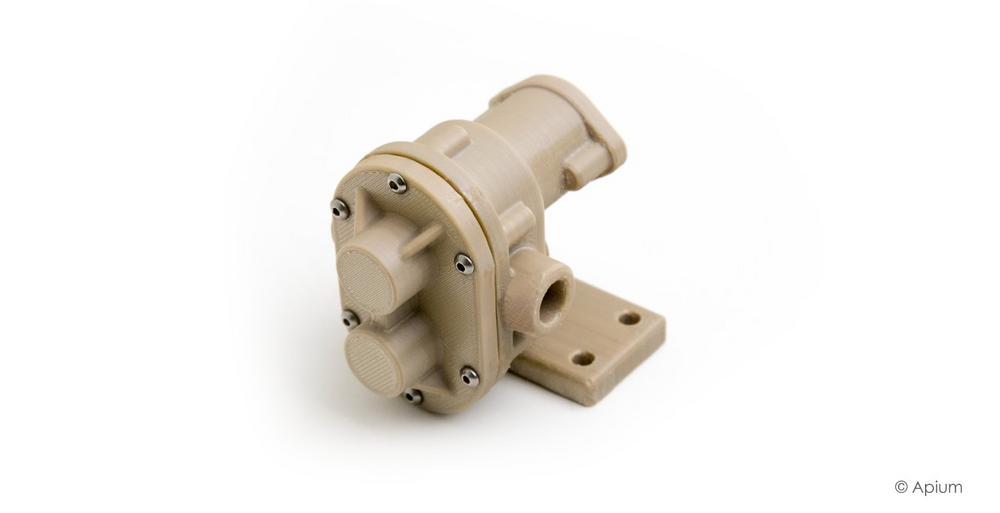Additive Manufacturing for Research & Development Projects
Consider for a moment that understanding how materials are organized under a variety of manufacturing scenarios can drive the development of parts and components which exhibit desirable performances when put to task. Most AM processes and technologies involve phase transformation from a solid to liquid state then back to a solid state (examples are Materials Extrusion (FFF) and the Powder Bed Fusion methods) or from the liquid state to the solid state (for example the VAT photopolymerization method). This phase change, which leads to part formation, surely is critical for property development in 3D printed parts.
Considering that the 3D printer is executing a set of digital instructions designed to be transmitted into the physical at the voxel level, it then follows that the associative solidification process must be accompanied by materials organization also at the voxel level. This singular correlation is suggestive of the potential of influencing part property at the single voxel or cluster-of-voxels level during the printing process. This technical ability is especially an advantage for the 3D printing fabrication of parts made from semi-crystalline materials such as PEEK, since amorphous regions as well as crystalline regions can be preferentially introduced at defined locations in the parts.
At Apium Additive Technologies GmbH a conscious effort has been made to develop its Materials Extrusion 3D printing technology for high temperature / high performance thermoplastic-based materials such as PEEK, PEI (Ultem), PVDF and POM-C. The Apium P-Series 3D printer is clearly a powerful tool for R&D groups because it gives them an opportunity to do science like never before using AM technologies.
An aspect of Apium’s 3D printing technology which is often overlooked by the printer users is the unique capability of controlling the degree of crystallinity in the material being 3D printed. The phase-change-empowering attributes of the Adaptive Heating System operating on the P-Series 3D printer makes it possible to define the cooling curve of the melt once it is extruded during the printing process. This Adaptive Heating System in fact moderates the phase transformation rate, the crystallization rate and alters the optical properties of the material which has been instantaneously extruded during the printing process. It also influences the temperature distribution across the part being 3D printed with a possibility of selecting the most suitable distribution profile based on part geometry. Together with the pure polymeric materials mentioned above, the P-Series printers are particularly attractive for researchers also interested in 3D printing polymer-matrix composite materials such as Carbon Fiber Reinforced PEEK. The Apium Controlling Software on the P-Series 3D printers enables process control by adjusting of different parameters thus offering an advanced printing experience.
Support for R&D Departments from the Manufacturer
To ensure that our users reap the best experience from Apium’s P-Series 3D Printers under any circumstance, our Material Extrusion 3D Printing expert is willing to give technical support to each of our customers. Due to the in-house expertise we have in materials science and engineering, there is also the option of working with you to develop choice materials conceived for 3D printing in your R&D activities. For instance, Apium’s latest extruder technology; Advanced Extruder, enables Apium P series 3D printers to process composite materials like carbon fibre reinforced PEEK.
Our work with the new metal filled polymer material; Ultrafuse 316LX, from BASF opens entirely new possibilities for the Apium Materials Extrusion 3D Printing technology. Our 3D printing system is open allowing for users to test print their confidential materials and examine the possibilities this technology offers for their specific business niche.
Presently more than 25 universities and research institutes located in different parts of the world use Apium’s 3D printers to prototype and study the manufacturing potentials of an advanced 3D printer.
"Apium’s commitment to the R&D groups is evidenced by the P-Series 3D printers."
Apium Additive Technologies GmbH
Siemensallee 84
76187 Karlsruhe
Telefon: +49 (721) 13 20 95 0
Telefax: +49 (721) 13 20 95 77
http://www.apiumtec.com/
Telefon: +49 (721) 680 30 87 0
E-Mail: pinar.karakas@apiumtec.com
![]()
